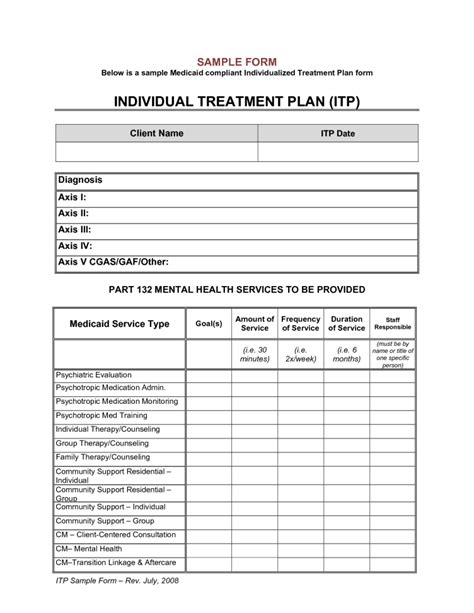Are you interested in pursuing a career in clinical psychology? If so, you’ve come to the right place. In this blog post, we’ll delve into the exciting and rewarding field of clinical psychology, exploring the various aspects of this profession and what it takes to succeed in it. From understanding the role of a clinical psychologist to gaining practical experience through internships, we’ll cover it all. We’ll also discuss the educational requirements, the art of psychological assessments, and the importance of creating effective treatment plans for patients. Additionally, we’ll touch on the development of strong communication skills, ethical guidelines, and the opportunity to work in multidisciplinary teams for holistic care. And of course, we’ll talk about the importance of continuing education and staying updated in this constantly evolving field. So, if you’re eager to learn more about pursuing a career in clinical psychology, keep reading.
Table of Contents
Understanding the Role of a Clinical Psychologist
When understanding the role of a clinical psychologist, it is important to recognize the unique skills and responsibilities that come with this profession. Clinical psychologists specialize in assessing, diagnosing, and treating mental, emotional, and behavioral disorders. They work with individuals of all ages and backgrounds, using their expertise to help improve psychological well-being.
Another key aspect of their role is conducting therapy sessions to help clients develop coping strategies and make positive behavior changes. Furthermore, clinical psychologists often work closely with other healthcare professionals, such as psychiatrists and social workers, to provide comprehensive care for their patients.
In addition to providing direct patient care, clinical psychologists also play a crucial role in conducting research to further understand and improve mental health outcomes. By studying the underlying causes of psychological issues and evaluating the effectiveness of various treatment approaches, they contribute to the advancement of the field.
Overall, the role of a clinical psychologist entails a combination of clinical work, research, and collaboration with other professionals to address the diverse needs of individuals struggling with mental health challenges.
Exploring the Field of Clinical Psychology
Clinical psychology is a diverse and rewarding field that focuses on helping individuals overcome mental health challenges and improve their overall well-being. Exploring this field involves gaining an understanding of the various roles and responsibilities of clinical psychologists, as well as the different settings in which they work.
The field of clinical psychology encompasses a wide range of specializations, including working with children, adolescents, adults, and the elderly. Clinical psychologists may also focus on specific mental health issues such as anxiety, depression, trauma, or substance abuse. This diversity allows professionals in this field to tailor their expertise to best serve their patients’ needs.
Furthermore, exploring the field of clinical psychology involves understanding the various treatment modalities and therapeutic approaches that are commonly used. From cognitive-behavioral therapy to psychodynamic interventions, clinical psychologists must be knowledgeable about a wide range of techniques to address the complex needs of their clients.
Overall, exploring the field of clinical psychology offers a unique opportunity to delve into the intricacies of the human mind and to make a positive impact on individuals’ lives, making it a fulfilling and dynamic career choice for those interested in the mental health profession.
Educational Requirements for Clinical Psychologists
When pursuing a career as a clinical psychologist, it is important to understand the educational requirements necessary to enter this field. In order to become a clinical psychologist, individuals must first complete a bachelor’s degree in psychology or a related field. This foundational education provides students with a broad understanding of human behavior, mental processes, and research methods.
After obtaining a bachelor’s degree, aspiring clinical psychologists must then pursue a graduate degree in clinical psychology. Most programs require a master’s degree at the minimum, while many positions in this field necessitate a doctoral degree. A Doctor of Psychology (Psy.D.) or a Doctor of Philosophy (Ph.D.) in Clinical Psychology are common paths for those seeking advanced training in this area.
Throughout their graduate studies, individuals will gain practical experience through supervised clinical work, which typically includes internships and practicum placements. These opportunities allow students to work directly with patients under the guidance of experienced professionals, building invaluable skills and knowledge.
Finally, after completing their education and training, aspiring clinical psychologists must obtain licensure in order to practice. Each state has its own set of requirements, but this typically involves passing the Examination for Professional Practice in Psychology and completing a certain number of supervised hours in a clinical setting.
Gaining Practical Experience through Internships
Internships play a crucial role in the development of clinical psychologists. Practical experience gained through internships provides aspiring psychologists with the opportunity to apply theoretical knowledge to real-world situations. It allows them to observe and learn from experienced professionals, gaining insight into the day-to-day responsibilities and challenges of the field.
Internships also offer the chance to work directly with patients, honing clinical skills and developing a deeper understanding of human behavior and mental health. By being immersed in a clinical setting, interns can apply their knowledge in a practical setting, gaining confidence in their abilities and competence in their field.
Furthermore, internships provide valuable networking opportunities. By working alongside established professionals, interns can build professional relationships that may lead to future job opportunities or mentorship. These connections can be invaluable in jumpstarting a career in clinical psychology and navigating the job market.
In conclusion, internships are a vital component of the training and development of clinical psychologists. The practical experience gained through internships is invaluable in shaping future professionals, equipping them with the skills, knowledge, and connections needed for a successful career in clinical psychology.
Mastering the Art of Psychological Assessments
Psychological assessments are a fundamental aspect of the work carried out by clinical psychologists. These assessments are used to evaluate an individual’s cognitive, emotional, and behavioral functioning, and they play a crucial role in informing the treatment and intervention plans for patients.
One of the key aspects of mastering the art of psychological assessments is developing a deep understanding of the various assessment tools and techniques available. This includes familiarizing oneself with standardized tests, clinical interviews, and observational methods, among others.
Furthermore, mastering psychological assessments also involves honing one’s ability to interpret and analyze assessment data accurately. This requires a high level of proficiency in understanding psychological theories and concepts, as well as the ability to integrate and synthesize information from multiple sources.
Another important component of mastering psychological assessments is the ability to communicate assessment findings effectively to both patients and other members of the healthcare team. This involves skillfully translating complex psychological concepts into understandable language, and being able to present findings in a way that is informative and empathetic.
Creating Effective Treatment Plans for Patients
One of the most important aspects of being a clinical psychologist is the ability to create effective treatment plans for patients. These plans are crucial in guiding the therapy process and ensuring that the patient receives the best possible care. When developing treatment plans, it is essential to take into account the individual needs and goals of each patient. This involves conducting thorough assessments and evaluations to determine the most appropriate course of action.
Moreover, communication with the patient is key in developing a treatment plan that is tailored to their specific needs. It is important to establish a strong rapport with the patient in order to understand their concerns and preferences. Additionally, involving the patient in the decision-making process can help them feel more invested in their treatment, ultimately leading to better outcomes.
Another crucial element in creating effective treatment plans is collaboration with other healthcare professionals. This may include consulting with psychiatrists, social workers, or other specialists to ensure that all aspects of the patient’s well-being are being addressed. By working in a multidisciplinary team, clinical psychologists can gain valuable insights and perspectives that can contribute to the development of comprehensive and holistic treatment plans.
Furthermore, it is important for clinical psychologists to continuously evaluate and adjust treatment plans as necessary. This involves monitoring the patient’s progress, reassessing their needs, and making modifications to the treatment plan as needed. Flexibility and adaptability are key traits for clinical psychologists in order to ensure that patients are receiving the most effective care possible.
Developing Strong Communication Skills in Clinical Psychology
Communication is a vital aspect of a clinical psychologist’s job, as it influences the ability to build rapport with patients and collaborate effectively with colleagues. Developing strong communication skills in the field of clinical psychology is essential for creating a supportive and trustworthy environment for patients to discuss their concerns and for psychologists to provide effective treatment.
One way to improve communication skills as a clinical psychologist is through active listening. This involves giving full attention to the patient, acknowledging their emotions, and providing feedback to demonstrate understanding. Effective communication also entails the ability to convey complex psychological concepts in an understandable manner, ensuring that patients are well-informed about their conditions and treatment options.
Furthermore, strong communication skills are crucial in collaborating with other healthcare professionals. Clinical psychologists often work in multidisciplinary teams, and clear and concise communication is necessary to ensure that all team members are aligned in their approach to patient care.
Ultimately, developing strong communication skills in clinical psychology is a continuous process that requires self-reflection, seeking feedback from peers, and actively working to improve both verbal and nonverbal communication techniques.
Navigating Ethical Guidelines as a Clinical Psychologist
As a clinical psychologist, it is crucial to navigate ethical guidelines when working with patients to ensure their well-being and maintain professional integrity. Ethical guidelines serve as a framework for practitioners to follow in order to provide the best care for their patients while upholding ethical standards. It is essential for clinical psychologists to understand and adhere to these guidelines to build trust with their patients and the community.
One of the key ethical principles in clinical psychology is confidentiality. This principle dictates that psychologists must protect the privacy of their patients and not disclose any information without the patient’s consent, except in certain circumstances such as when there is a risk of harm to the patient or others. Navigating confidentiality requires clinical psychologists to handle sensitive information with the utmost care and responsibly communicate with their patients about the limits of confidentiality.
In addition to confidentiality, another important ethical consideration in clinical psychology is maintaining professional boundaries. This involves establishing and maintaining appropriate relationships with patients, avoiding conflicts of interest, and ensuring that the focus remains on the patient’s well-being. Navigating these boundaries requires self-awareness, empathy, and clear communication to establish a therapeutic alliance while honoring professional boundaries.
Furthermore, ethical guidelines also address the issue of informed consent, which entails providing patients with comprehensive information about the nature of the psychological services, potential risks and benefits, and alternatives to treatment. Clinical psychologists must ensure that their patients have a full understanding of what to expect from therapy and any potential outcomes, empowering them to make informed decisions about their care.
Working in Multidisciplinary Teams for Holistic Care
Working in multidisciplinary teams is a crucial aspect of providing holistic care in the field of clinical psychology. Collaboration among professionals from different disciplines, such as psychiatrists, social workers, and occupational therapists, allows for a comprehensive approach to treating patients with mental health issues.
When clinical psychologists work in multidisciplinary teams, they have the opportunity to gain diverse perspectives and insights that can inform their assessments and treatment plans. This holistic approach takes into account the various dimensions of a patient’s well-being, including their physical, emotional, and social needs.
Furthermore, working in multidisciplinary teams promotes effective communication and coordination of care. Each member of the team brings their expertise to the table, contributing to a more comprehensive and personalized approach to treatment. This collaboration ultimately leads to better outcomes for patients.
Overall, the integration of different professionals in multidisciplinary teams enhances the quality of care provided to patients, ensuring that their holistic needs are met.
Continuing Education and Staying Updated in the Field
Continuing education is an essential part of the field of clinical psychology, as it allows professionals to stay updated on the latest research and treatment techniques. By participating in workshops, seminars, and conferences, clinical psychologists can expand their knowledge base and learn about innovative approaches to therapy.
Staying updated in the field also involves keeping abreast of recent developments in the realm of mental health legislation and ethical guidelines. It is crucial for clinical psychologists to be well-informed about any changes that may impact their practice, and continuing education offers an opportunity to gain expertise in these areas.
Furthermore, ongoing learning enables clinical psychologists to enhance their skills and competencies, ultimately improving the quality of care they provide to their patients. Whether through online courses, peer-reviewed journals, or professional development programs, the pursuit of knowledge is a lifelong commitment for those working in the field of clinical psychology.
By prioritizing continuing education and staying updated in the field, clinical psychologists can ensure that they are delivering the most effective and evidence-based care to their clients.






